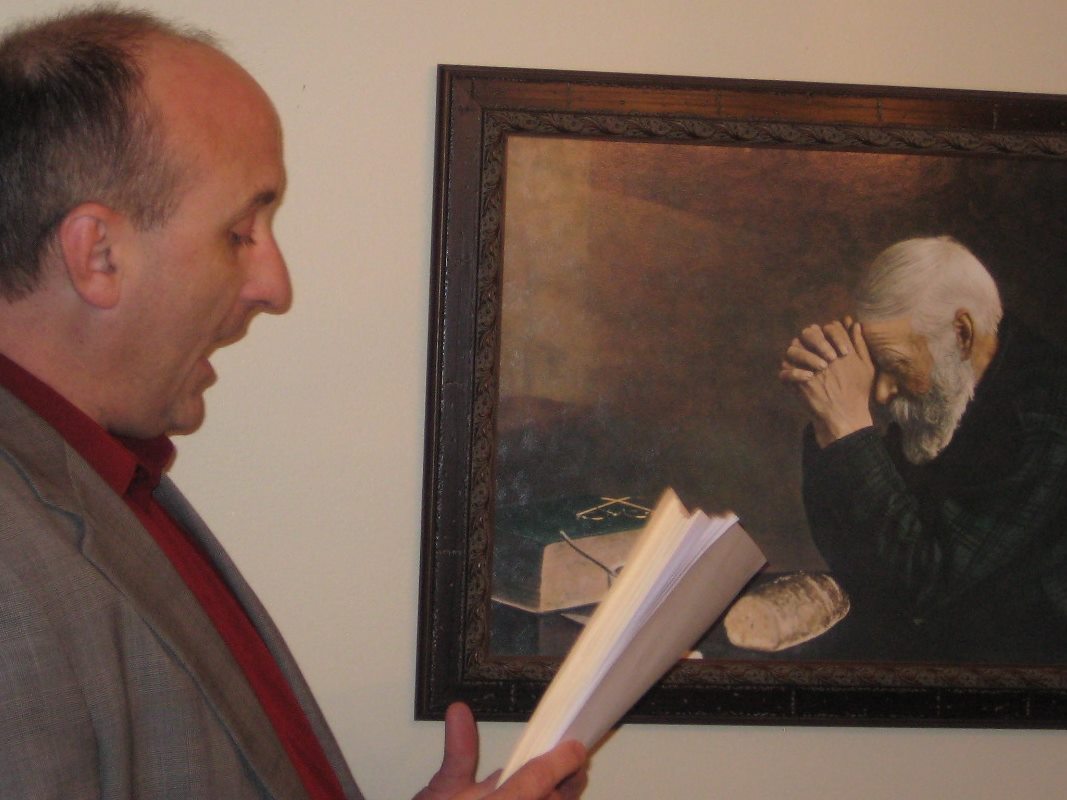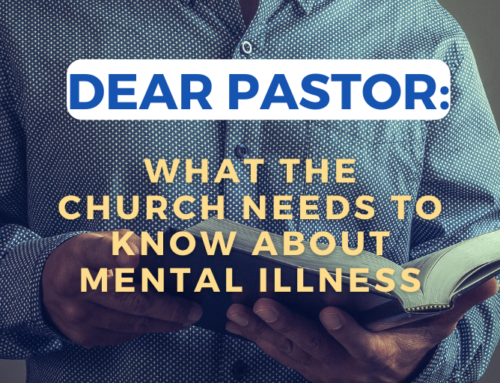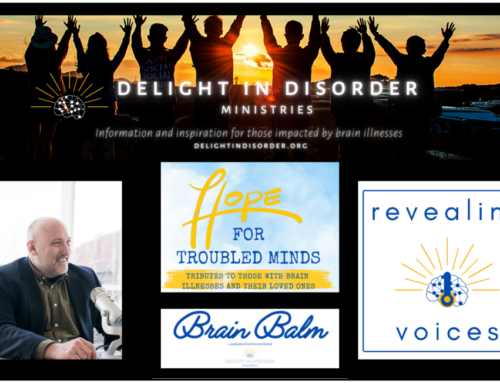Over this past weekend, I posted a piece (“Mixing Ministry with Mental Illness”) on a Facebook page for mental health advocates. I posed the question,
“I am a former pastor who has wrestled for over 20 years with bipolar 1. Here is part of my story. I would love to hear from you on how faith has impacted your mental illness, or, how mental illness has impacted your faith.”
The responses were very thoughtful and uplifting:
“The only way I became as stable as I’m proud to say I am today is because of the right meds, a good therapist & learning to have a deep intimate relationship with Jesus. Of these three things I believe my faith is the strongest saving grace for me.”
“I pray that more people with understanding of mental illness will enter the ministry on their behalf. I watched my son pray for and lead people in hospitals and realized that there are jail ministries but sorely lacking faith partners in mental health facilities.”
“I can say for sure the “Pray it away” doesn’t work and is stigmatizing. However, having faith that things will eventually work out with a lot of hard work and trial and error, has gotten me through many rough patches.”
“Lots of people over-spiritualize mental illness and don’t get treated…or ignore need for spiritual intervention…needs treatment on all levels, physical, mental (counseling), and spiritual…”
The responses were overwhelmingly positive. To be fair, here are two less favorable.
“Mental illness makes faith so hard because the fear and twisting of scripture and all of the damn interpretations my mind creates are so confusing. It repels me from wanting to read the Bible. It’s a really weird book in a lot of ways. Some of it just isn’t for the paranoid. Other times a run to God for safety, but I’d say it’s more of an obstacle to faith than anything.”
“My son’s church is actually encouraging him to pray for a miracle , so he prays instead of taking his meds . AND he tithes ( religiously) ten percent of his disability check . He is fanatically religious and it is part of his illness. It is a symptom . Preachers getting mixed up in “curing” mental health sounds like a hustle to me .”
Now, I’ll ask you,
How has faith impacted your mental illness, or, how mental illness has impacted your faith.”
Discover more from Delight in Disorder
Subscribe to get the latest posts sent to your email.









““Pray it away” doesn’t work and is stigmatizing.” I agree with this, Tony. Faith communities must partner with medical communities and encourage those of us with mental illness to be responsible and take our medications. Prayer and faith helps to manage our illness, but we must understand God also created psychiatrists and gave them wisdom to treat us. Just as we trust other specialists to treat illnesses like diabetes and cancer, we must pray for specialists who treat mental illness and support them in treating the patients who attend our faith communities. It is irresponsible to do otherwise.
I like how Katherine McCreight-Greene puts it in her book, Darkness is My Only Companion ; for one to battle mental illness effectively, it requires a “three-fold” strand (as in Proverbs). Prayer. Medication. Therapy. I would add worship in the mix, but I agree with her in essentials.
For me, the learned skill of discerning God’s voice from other voices has been essential. It has also been critical to have at least one believing friend who can tell me when racked by tormenting ideas, “I understand that this is what you believe today, but it is not what you have believed during most of the time we have been friends.”
Excellent point, Carlene. A spiritually mature friend can assess both what is integral in our character and consistent with our shared beliefs.